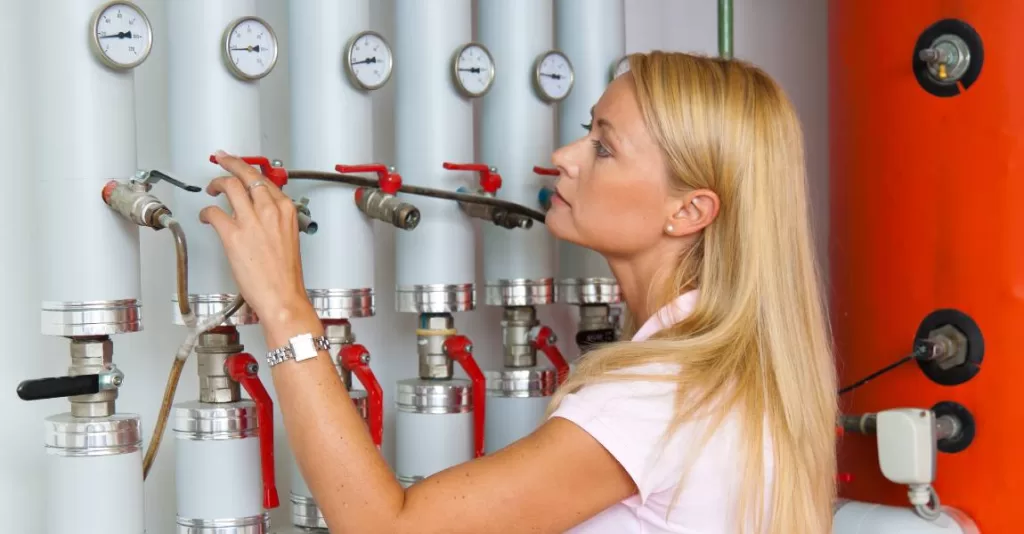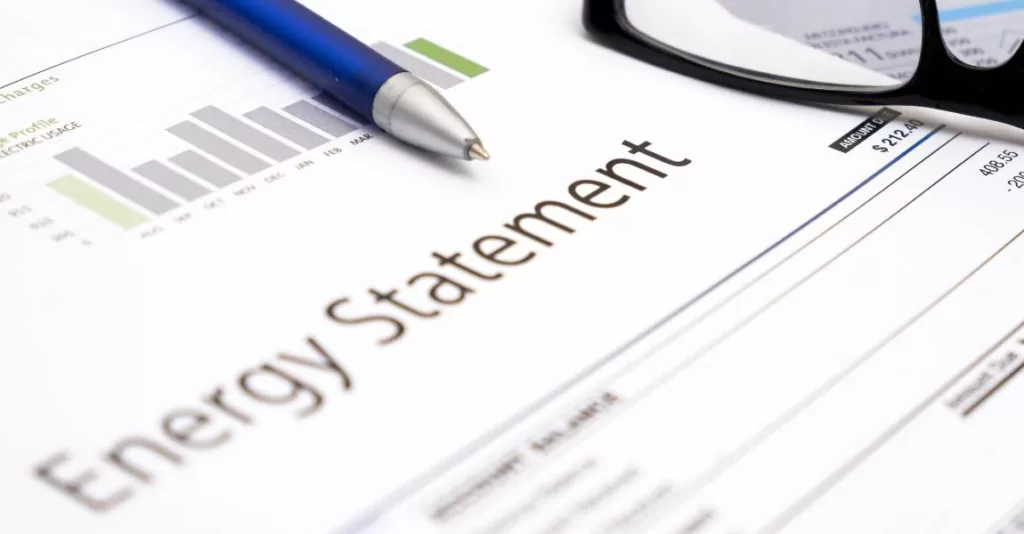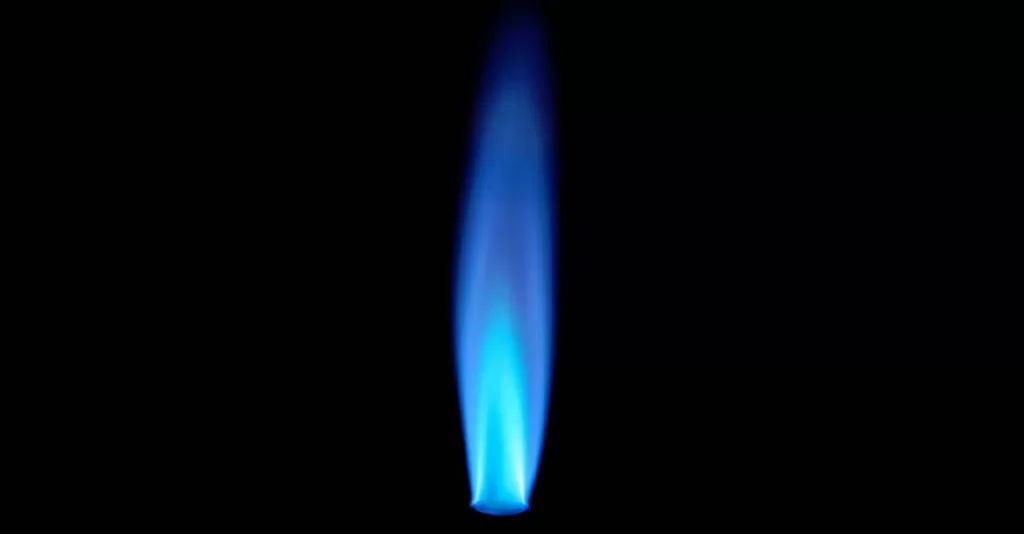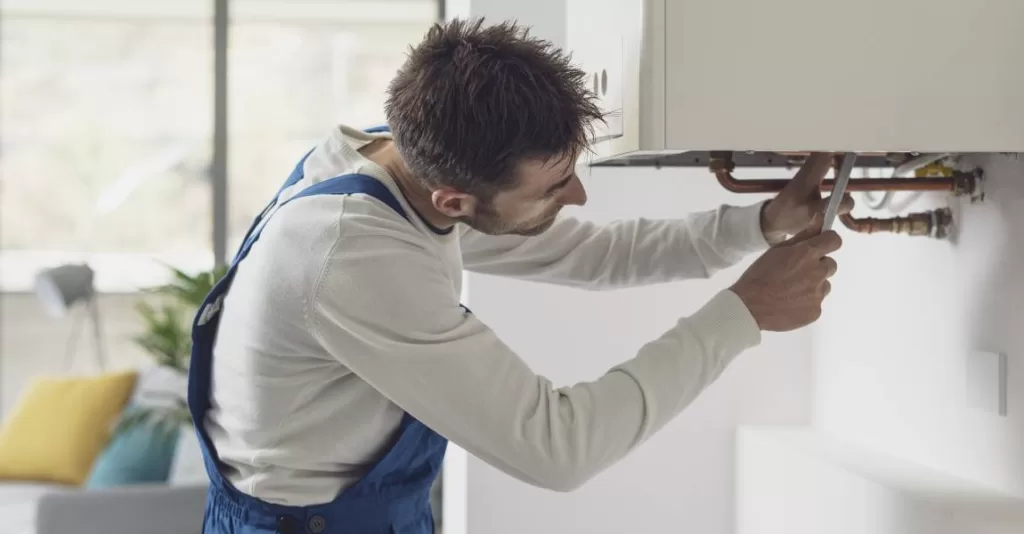Is your boiler acting up? In this article, we will discuss 10 signs your boiler needs repairs and provide tips on how to fix them.
By understanding these signs and knowing how to address them, you can ensure that your boiler continues to operate efficiently and effectively.

Table of Contents
What is a Boiler?
A boiler is a closed vessel in which water or other fluid is heated to generate steam or hot water. They are commonly used to provide heating in buildings, as well as for industrial processes and power generation. They come in various sizes, configurations, and fuel sources, such as natural gas, oil, or electricity.
The basic concept of a boiler involves transferring heat produced by burning fuel to water, which then becomes steam or hot water. This heated fluid is then circulated throughout a building or used in various industrial applications.
It plays a crucial role in providing heat and hot water for residential, commercial, and industrial purposes, making them an essential component of many systems.
Understanding the basics of how a boiler functions are important for ensuring proper operation and maintenance.
Common Boiler Problems and Warning Signs
Common problems can manifest through a variety of warning signs. Strange noises such as banging, whistling, or gurgling can indicate issues like air buildup, kettling (overheating), or a faulty pump. Declining efficiency, causing higher energy bills or uneven heating, may point to issues like a build-up of sludge or a malfunctioning thermostat. Other malfunctions to look out for include leaks, low pressure, and a pilot light that frequently goes out.
These problems can significantly impact performance and safety. Strange noises can signify impending breakdowns or damage to internal components. Declining efficiency can lead to higher energy consumption and reduced heating capabilities. Malfunctions like leaks or low pressure can pose safety hazards and potential property damage.
It is important to address these warning signs promptly to prevent further damage and ensure the safety and efficiency of the boiler.
Regular maintenance and immediate attention to common boiler problems can help prevent larger, more costly boiler repair issues.
1. High Energy Bills
High energy bills can be a burden on both your wallet and the environment. Whether due to increased usage or inefficiencies in your home, finding ways to lower your energy bills is a priority for many homeowners and renters.
By understanding the factors contributing to high energy bills and implementing practical solutions, you can reduce your energy costs and make sustainable choices for the future. From simple changes in behavior to home improvements, there are various strategies to help you lower your monthly energy expenses.
Causes of High Energy Bills
High energy bills can be caused by various factors related to boiler efficiency. Decreased efficiency can occur due to malfunctioning components, such as a faulty thermostat or a clogged filter, leading to increased energy consumption.
Wear and tear on older boilers can decrease efficiency and increase heating bills. Even a small change in a home’s temperature can significantly impact energy costs, with each degree difference potentially adding to the bill.
Seeking professional repair or boiler replacement can restore efficiency and save money in the long run. Professional repair can address any malfunctioning components and improve the overall efficiency of the boiler.

For older boilers, a new replacement boiler can be a more energy-efficient model and lead to significant cost savings over time. These professional interventions can help lower energy bills and ensure that the boiler operates at its maximum efficiency.
By addressing the causes of high energy bills through professional repair or a boiler replacement, homeowners can take proactive steps to reduce their energy costs and improve the overall efficiency of their heating system.
How to Fix High Energy Bills
Are you experiencing unusually high heating bills? One common culprit could be an inefficient or poorly maintained boiler. To address this issue, it’s important to introduce regular professional maintenance and service for your boiler. By doing so, you can restore efficiency and ultimately save money on your utility bills.
If you’re noticing issues with your boiler, consider seeking professionals to repair or replace malfunctioning components. This can help decrease energy consumption and increase efficiency, lowering heating bills. Additionally, if your current boiler is old and inefficient, upgrading to a new model may be beneficial. While there is an upfront cost, a new boiler will increase energy efficiency and ultimately save you money on your heating bills.
By prioritizing professional maintenance, seeking professional assistance with boiler issues, and potentially upgrading to a new, more efficient model, you can take proactive steps to decrease energy consumption and reduce heating bills
2. Hot Water Issues
Are you experiencing hot water issues in your home? From common problems like inconsistent temperature to more serious issues like leaks or strange noises, hot water issues can disrupt your daily routine and cause frustration.
In this section, we will explore the various hot water issues that homeowners commonly encounter and provide helpful tips and advice on diagnosing and addressing these problems. Whether a simple fix or a more complex issue, understanding the potential causes and solutions for hot water issues can help you maintain a reliable and efficient hot water system in your home.
Common Hot Water Issues
Common hot water issues with boilers include low water temperature and insufficient hot water production. Several potential factors can cause these issues.
- Low water temperature can be caused by a malfunctioning thermostat, which may need to be recalibrated or replaced.
- Another potential cause is an airlock in the system, which can be resolved by bleeding the radiators to release trapped air.
- Insufficient hot water production can result from a faulty diaphragm, which may need to be replaced, or a build-up of sediment in the system, which can be resolved by flushing the boiler.
To address these issues, homeowners can start by checking the thermostat to ensure it functions properly.
If an airlock is suspected, bleeding the radiators can help release trapped air. If the issue persists, it may be necessary to call a professional to inspect and potentially replace the diaphragm or flush the system.
Regular maintenance and servicing can also help prevent these hot water issues from occurring.
How to Fix Hot Water Issues
If you are experiencing hot water issues, the first step is to check the boiler pressure gauge and ensure it is above 1 bar.
Low pressure can lead to inadequate hot water, an important first check. If the pressure is low, consider scheduling a boiler service or repair. Low pressure and inadequate hot water are clear indicators of a failing or broken boiler, so addressing the issue promptly is essential.
If there are no DIY fixes and the problem persists, it’s time to contact a heating specialist for further investigation and repairs.

3. Pilot Light Problems
Pilot light problems can be a frustrating and potentially dangerous issue for homeowners. When the pilot light goes out or won’t stay lit, it can disrupt day-to-day activities and create safety concerns.
We will explore the common pilot light problems experienced by homeowners and provide potential solutions to resolve these issues. Whether it’s a malfunctioning thermocouple, clogged pilot light, or a faulty gas valve, understanding and addressing pilot light problems is essential for maintaining a safe and functional home.
A professional can properly assess the boiler and address any underlying issues to ensure your hot water system is functioning efficiently. Don’t ignore hot water issues, as they could indicate a more significant problem with your boiler.
Causes of Pilot Light Problems
Pilot light problems on a boiler can be caused by various issues, including ventilation problems, a faulty thermocouple, or issues with the gas supply.
Poor ventilation can lead to insufficient oxygen for the pilot light to burn properly, resulting in it burning an unusual color or consistently going out.
A faulty thermocouple detects if the pilot light is lit and can also cause issues. If the thermocouple malfunctions, it may incorrectly detect the pilot light as being extinguished and shut off the gas supply.
Gas supply problems, such as low gas pressure or a blockage in the gas line, can also cause pilot light issues. If the gas supply is compromised, the pilot light may struggle to stay lit or burn an unusual color.
Warning signs of pilot light problems include the light burning a different color than usual, such as a yellow flame instead of blue, or going out frequently despite being relit.
It is important to address these warning signs promptly to prevent further issues and ensure the safe and efficient operation of the unit. Regular maintenance and inspection can help prevent and address these potential causes of pilot light problems.
4. Warning Signs of Major Repairs Needed
Boilers provide heat and hot water in many homes and buildings. They can also be prone to issues requiring timely maintenance and repairs. Knowing the warning signs your boiler needs repairs can help homeowners and property managers address problems before they escalate.
Obvious Signs Your Boiler Needs Repairs
- Frequent breakdowns: If your boiler constantly break down and require repairs; it clearly indicates that it needs major attention. This could be a sign of serious issues that must be addressed to prevent further damage.
- Leaks: Any signs of water leaks around your boiler or from the pipes connected to it are a red flag. Leaks can indicate issues with the components or the system’s overall integrity and should not be ignored.
- Strange noises: Unusual sounds coming from your boiler, such as banging, clunking, or whistling, are not normal and can signal underlying problems that need to be addressed.
- A sudden increase in energy bills: A sudden spike in your energy bills without a corresponding increase in usage can indicate that your boiler is not functioning efficiently, leading to higher energy consumption.
These are warning signs your boiler needs repairs, frequent breakdowns, leaks, strange noises, and sudden energy bill increases clearly indicate that your boiler requires major repairs to ensure optimal performance and safety.
How to Address Major Repair Needs
It is crucial to promptly address major signs your boiler needs repairs to avoid further damage and ensure the safety and efficiency of your heating system. Ignoring these issues can lead to costly repairs, potential safety hazards, and reduced heating efficiency.
If you notice any unusual noises coming from your boiler, such as banging or whistling, or if you find leaks around the unit, it is important to have a professional technician inspect and repair the issue immediately. Inconsistent heating throughout your home can also indicate a major repair need and should not be ignored.
A boiler replacement may sometimes be necessary if the unit is outdated or damaged. It is important to consult a qualified technician to determine the best action.
Addressing major repair needs for your boiler in a timely manner is essential for the safety of your home and family. It also ensures that your heating system operates efficiently, saving you money on energy costs in the long run.
Don’t hesitate to seek professional help when dealing with these issues, as safety should always be the top priority for maintenance.

5. Strange Noises
If you’re hearing unusual or loud noises from your boiler, it could be a sign that something is not quite right.
Common noises include kettling, clunking, and banging, which can indicate various issues.
- Kettling typically occurs when limescale buildup restricts the water flow in the heat exchanger, causing it to overheat and produce a rumbling or kettle-like noise.
- Clunking and banging noises may signal a broken valve or pressure problems within the system.
These telltale signs of trouble may require immediate attention from a professional to diagnose and fix the problem. Ignoring these noises could lead to further damage, higher repair costs, or even a boiler breakdown. In some cases, these noises could also indicate that the boiler is reaching the end of its lifespan and may need to be replaced.
If you’re experiencing these types of noises, you must contact a qualified technician to inspect your boiler and perform any necessary repairs. Addressing these issues promptly can help ensure the safety and efficiency of your heating system.
6. Odors from the Boiler
If you notice any strange odors coming from your boiler, it is essential to take immediate action. If you detect the smell of rotten eggs, indicating a gas leak, it is crucial to call a qualified heating contractor immediately. Do not ignore this smell, as gas leaks can be extremely dangerous.
In the event of a gas leak, it is important not to operate any light switches or plugs, extinguish all flames, open windows and doors, and evacuate the property. Your safety is the top priority.
If the odor is more of a dusty smell, it is likely due to dust accumulation in the radiators rather than an issue with the boiler itself. In this case, cleaning and maintaining the radiators is important to eliminate the odor.
In any case, it is always best to promptly address any unusual odors coming from your boiler to ensure your heating system’s safety and proper functioning.
7. Leaks
Boiler leaks can be a common issue for homeowners. Still, it is important to address them promptly to prevent further damage and ensure the safe operation of the boiler.
1. Upon discovering a boiler leak, immediately shut off the power and water supply to the unit to prevent further damage.
2. Contact a professional engineer or technician immediately to assess the leak and determine the cause.
3. Do not attempt to repair the leak yourself, as this can be dangerous and may cause further damage to the boiler.
4. The engineer will repair the leak and thoroughly inspect the boiler to ensure there are no additional issues.
5. Ignoring a leak can lead to serious consequences, including water damage to the surrounding area, damage to the boiler’s components, and potential health hazards from mold and mildew.
6. Acting promptly to address the leak is crucial to prevent further damage and potential dangers.
A boiler leak should never be ignored, and promptly contacting a professional engineer or boiler technician is essential to prevent further damage and potential dangers.

8. Doesn’t Heat Up
There are several reasons why it may not be heating up properly.
Some common issues:
- A malfunctioning circulation pump can prevent hot water from circulating through the system and reaching the radiators.
- Airlocks in the system can also hinder the flow of hot water, leading to inadequate heating.
- Mineral deposits in the radiators can build up over time, causing blockages and reducing the heating system’s efficiency.
Addressing this issue promptly is crucial to prevent a complete system breakdown. If left unresolved, it can lead to a loss of heating in the home, creating discomfort for the residents.
9. Issues with Water Pressure
Potential issues with water pressure can lead to a decrease in the efficiency and effectiveness of your heating system. Signs of a potential issue related to water pressure and flow include inconsistent heating in your home, strange noises, and a sudden increase in energy bills. A potential leak in the system can also cause a drop in water pressure, leading to further issues.
It is important to contact a licensed engineer to diagnose the problem and provide a remedy for the water pressure and flow issues. A licensed engineer has the expertise and experience to accurately identify the root cause of the problem and provide the necessary repairs or maintenance. Attempting to fix the issue yourself could lead to further damage and potentially void warranties.
10. Age of Boiler
The age of a boiler is a crucial factor in determining its efficiency and functionality. Its efficiency can decline as it ages, leading to higher energy costs and potential malfunctions. Older units may also struggle to maintain a consistent and reliable heat output, impacting the comfort of the property.
Regular servicing of an aging unit is essential to extend its lifespan and delay the need for a costly replacement.
Maintenance tasks such as cleaning, testing, and repairing worn parts can help to keep it running efficiently.
Servicing the unit can identify any potential issues early, preventing the need for extensive and expensive repairs in the future.
In Summary
In conclusion, recognizing the signs that your boiler needs repair is crucial for maintaining a safe and efficient heating system in your home. In addition to these signs, homeowners should also prioritize regular boiler maintenance tips for homeowners to ensure optimal performance and longevity of their system. Simple steps such as checking the pressure levels and bleeding radiators can significantly improve efficiency and prevent costly repairs. Furthermore, scheduling an annual inspection with a qualified technician can help identify potential issues before they become major concerns.
You can prevent further damage and costly repairs by being aware of these signs and taking prompt action. It’s important to address these issues promptly, whether strange noises, leaks, or inconsistent heating.
Call our professional boiler repair service today and schedule an inspection to keep your boiler running smoothly and efficiently. Stay warm and worry-free with our expert boiler repair services.


